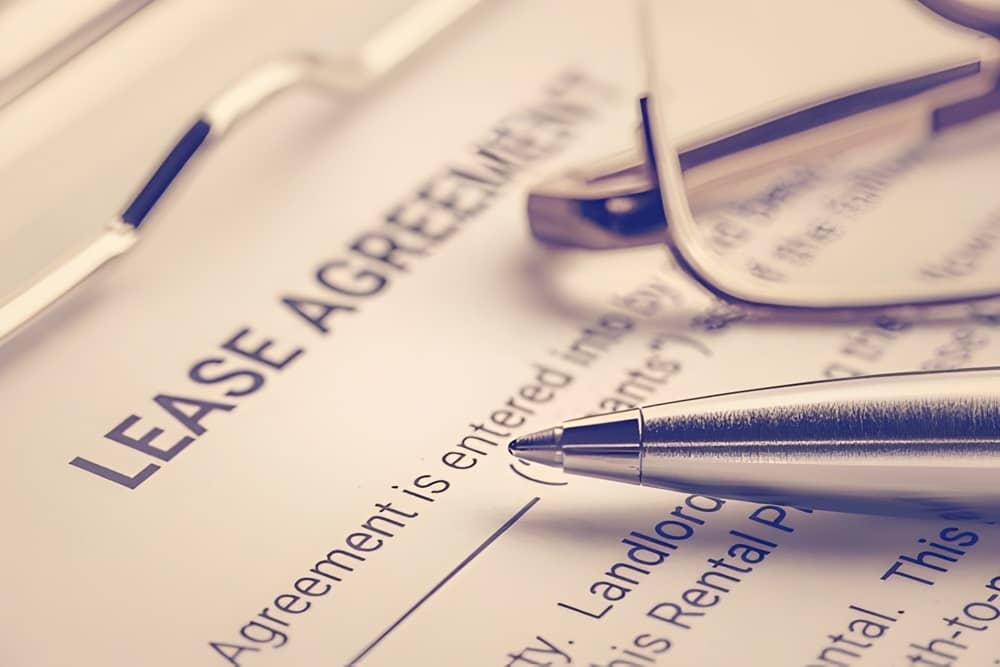Landlord Demanding Excessive Repairs? How Lease Dispute Lawyers Protect Commercial & Retail Tenants

Ending a retail or commercial lease should be a straightforward handover. But too often, it turns into a costly dispute over make-good, repairs, de-fit obligations, or alleged damage to the premises. Suddenly, your exit timeline, cash flow, and next site fit-out are all at risk.
If your landlord is insisting on excessive works or inflated costs, you’re not alone. Lease-end disputes are common across shops, offices and warehouses—especially where the lease and disclosure documents weren’t read together, or where handover standards were never clearly defined.
This guide explains what landlords can and can’t demand at the end of a retail or commercial lease, why these disputes arise, and how experienced lease dispute lawyers protect your business, negotiate fair outcomes, and keep your exit (or relocation) on track.
Why Lease-End Disputes Are So Common in Retail & Commercial Properties
Once a tenant vacates, landlords often re-inspect with a “fresh eyes” lens—comparing the current condition against lease obligations rather than day-to-day operational realities. Disputes typically arise around:
- > Make-good scope: “Return to base building” vs “back to original condition” vs “reasonable wear and tear” (vague clauses = big arguments).
- > De-fit requirements: Removal of tenant fixtures, signage, partitions, mezzanines, data cabling, kitchens, etc.
- > Repairs vs upgrades: Landlord claiming replacement with new items (an upgrade) when a repair or like-for-like is all the lease requires.
- > Outgoings & compliance: Who pays for Essential Safety Measures (ESMs), fire services, HVAC compliance, grease trap, cool room, lift certifications at exit?
- > End-of-term cleaning & waste: Industrial/food sites often dispute deep-cleaning, degreasing, or trade waste removal.
- > Dilapidation and evidence gaps: No entry/exit photos, missing condition reports, or undocumented landlord works during your term.
If you’re a tenant facing unfair repair demands, our dedicated commercial lease lawyers in Gosford or Burwood can provide the legal guidance you need. Buckley Lawyers specialises in resolving lease disputes with strong local knowledge.
Key Concepts: Make-Good, Wear & Tear, Base Building and Tenant Fixtures
A Make-good clause in a lease represents the lessee’s obligation to return the property to a specific condition at the end of the lease. . Your legal argument hinges on the lease wording, any Agreement for Lease, the Disclosure Statement (for retail leases), and any correspondence between the parties.
- > Base building vs tenant’s works
Landlords can require removal of tenant works (e.g., joinery, branding, specialty lighting) and reinstatement of penetrations, but not force you to upgrade the base building. - > Reasonable wear and tear
Commercial leases often exclude “fair wear and tear” from the tenant’s obligations. Scuffed floors in high-traffic retail areas, or minor paint discrepancies after a standard lease term are usually not considered “damage.” - > Like-for-like
Where replacement is required, it’s typically like-for-like—not “new and better.” If the landlord wants a spec uplift, that’s an improvement cost, not your make-good obligations.
When Landlords Overstep
Red flags we regularly see:
- > Full strip-out demands when only light de-fit is required under the lease.
- > Complete repaint/recarpet despite a short term or where wear is consistent with permitted use.
- > Base-building upgrades (e.g., new HVAC plant) pushed onto the tenant.
- > Inflated landlord quotes with premium contractors and margin/contingency well above market.
- > Holding the bank guarantee/security to pressure quick (and expensive) settlements.
Your Commercial Position: Security, Evidence and Leverage
Commercial/retail leases usually use a bank guarantee or cash security, often coupled with personal guarantees for SMEs. That security can be used as leverage for landlords—but it can also be your bargaining chip:
- > Security can’t be drawn down arbitrarily. Landlords must point to genuine breaches and reasonable costs connected to those breaches.
- > Evidence wins. Entry and exit condition reports, dilapidation surveys, photos, maintenance logs, compliance certificates (HVAC, ESMs), and fit-out drawings/approvals all narrow the dispute.
- > Disclosure matters (Retail). For retail leases, disclosure documents and any landlord works promised at entry influence what’s reasonable at exit.
How Retail & Commercial Lease Lawyers Protect Your Business

1) Diagnose the Paper Trail
We review the lease, disclosure statement, agreement for lease, fit-out approvals, side letters, entry photos and any landlord’s works during the term. We identify what the lease actually requires at handover—and what it doesn’t.
2) Define a Reasonable Make-Good Scope
We separate lawful make-good from upgrades/improvements, quantify realistic costs, and push back on landlord overreach (e.g., full remodel disguised as “repairs”).
3) Negotiate to Contain Cost, Time and Risk
We negotiate pragmatic outcomes: a reduced works list, cash settlement caps, landlord self-perform (with cost limits), or staged works that don’t jeopardise your next site opening.
4) Protect Your Security & Guarantees
We resist improper bank guarantee drawdowns, seek releases on practical completion of agreed make-good, and aim to limit directors’ exposure under personal guarantees.
5) Represent You in Formal Processes to Resolve Matters
If negotiation stalls, we can explore mediation through the NSW Small Business Commissioner , or represent you at Court/NCAT where applicable. In such circumstances, we will provide you with clear advice and a costed list of alternatives to best resolve your matter.
Practical Ways to Reduce Exit Pain
- > Keep a living condition file: photos, service records (HVAC, fire), cleaning logs, minor repair invoices.
- > Plan de-fit early: 3–6 months from expiry—scope the works and get competitive quotes.
- > Do a pre-exit walk-through: Table a proposed scope to the landlord and resolve gaps before you move out.
- > Mind alterations approvals: Unapproved works are often targeted at exit—regularise during the term where possible.
- > Track make-good accruals: Budgeting avoids surprise cash flow hits when you’re also funding a new fit-out.
For tenants in North Sydney and Chatswood, navigating lease disputes can feel overwhelming. That’s why our commercial lease lawyers in North Sydney and Parramatta offer tailored advice to safeguard your business and protect you from unnecessary repair costs.
Why Get Legal Help
For businesses, —make-good, downtime, lost security, delayed opening of your new site—can be costly . A focused legal strategy therefore can:
- > Cut inflated make-good claims down to the lease-true scope.
- > Secure timely return of bank guarantees/cash security.
- > Prevent upgrade costs being pushed onto you.
- > Keep your relocation timeline intact
Final Thoughts
Lease exits shouldn’t sink your budget or delay your next opening. If a landlord is demanding excessive make-good, upgrades masquerading as repairs, or trying to hold your security, you have commercially strong options. The right legal team will narrow the scope to what the lease truly requires, negotiate a fair, cost-controlled exit, and protect your guarantees.
Need a fast, pragmatic strategy for your lease end? Get in touch with Buckley Lawyers for tailored advice on retail and commercial lease disputes, make-good negotiations, and security releases.
FAQs
Do I have to “return to base building”?
Only if your lease says so. Many leases require removal of tenant works and reasonable reinstatement—not upgrades or brand-new base-building assets.
Landlord wants new carpet/paint throughout—can they insist?
Only where the lease requires it and the condition genuinely exceeds fair wear for the term/use. Otherwise, like-for-like repair or targeted reinstatement may be sufficient.
They’re threatening to call on my bank guarantee. What now?
A prompt legal response is important . We challenge improper drawdowns, offer a compliant make-good plan, or negotiate capped settlements so your guarantee is released to you.
We’re in a shopping centre with a retail lease. Does that change anything?
Yes. A Retail Lease must comply with the Retail leases Act 1994 (NSW) and the requirement of a landlord to provide a disclosure statement to the lessee often improves transparency and can support a more balanced outcome.
Is it best to simply pay the landlord what they want?
Not usually. Inflated make-good obligations can exceed the true scope by a wide margin. Obtaining the assistance of a lawyer commonly saves significant costs and preserves security.
- How Do I Keep the Family Home in a Divorce? Advice from a Family Lawyer
- Landlord Demanding Excessive Repairs? How Lease Dispute Lawyers Protect Commercial & Retail Tenants
- Breach of Contract Claims: How Commercial Litigation Lawyers Prove Your Case
- Before You Go to NCAT: How Building Dispute Lawyers Help With Fair Trading First
- Parenting After Separation: How Parenting Lawyers Help Before Going to Court
- How do I formalise my property settlement agreement?
- Understanding the Difference Between License Disqualification and Suspension in NSW License Suspension
- The importance of formalising your family law property settlement agreements
- Family Law Matters Allocated to the Evatt List
- De Facto Relationships In Family Law
- License Suspension in NSW: Your Guide to Understanding and Appealing
- NCAT Disputes
- Litigation And Dispute Resolution
- Environmental And Planning
- Business And Commercial Law
- Building And Construction
- Bankruptcy And Insolvency
We can help.
